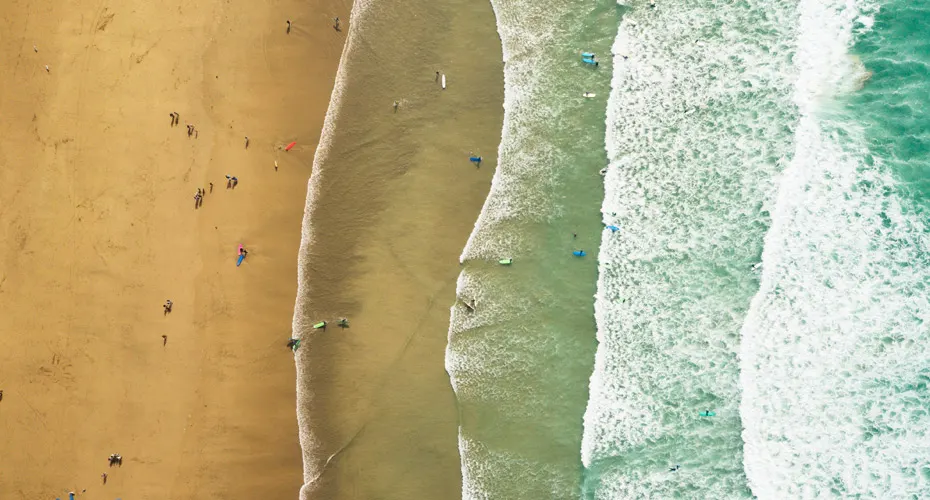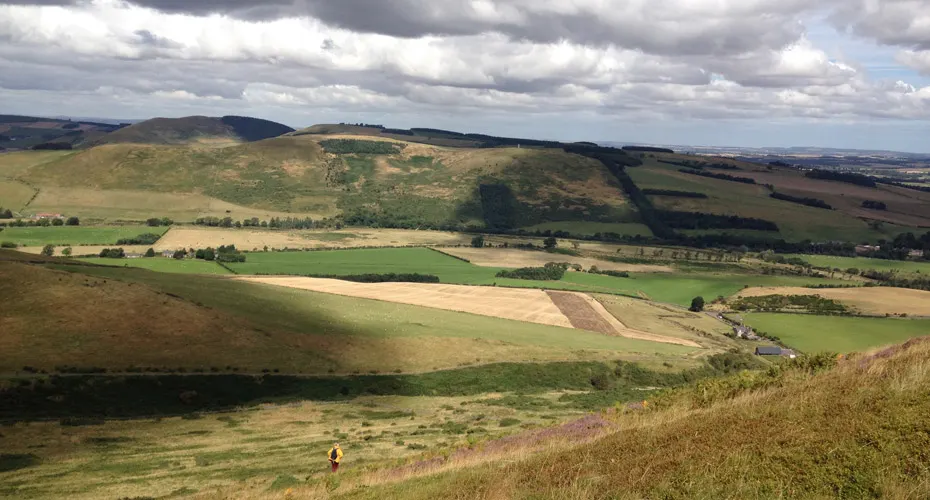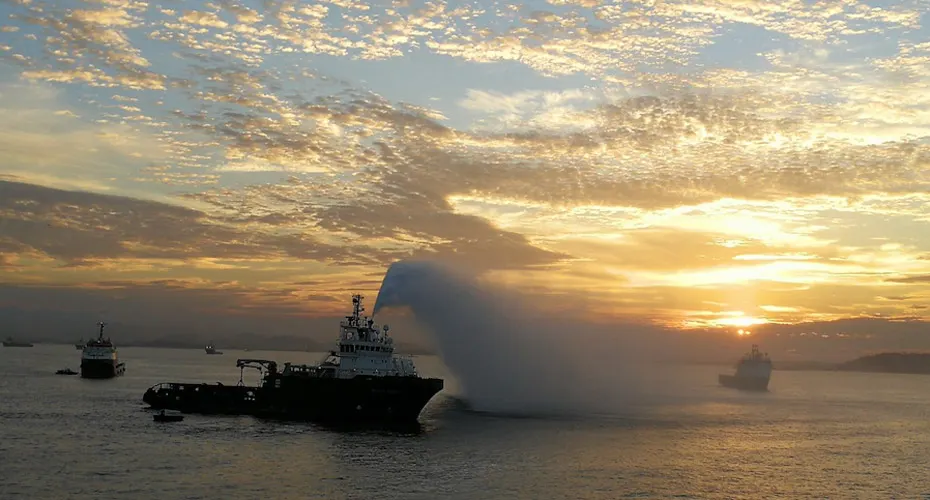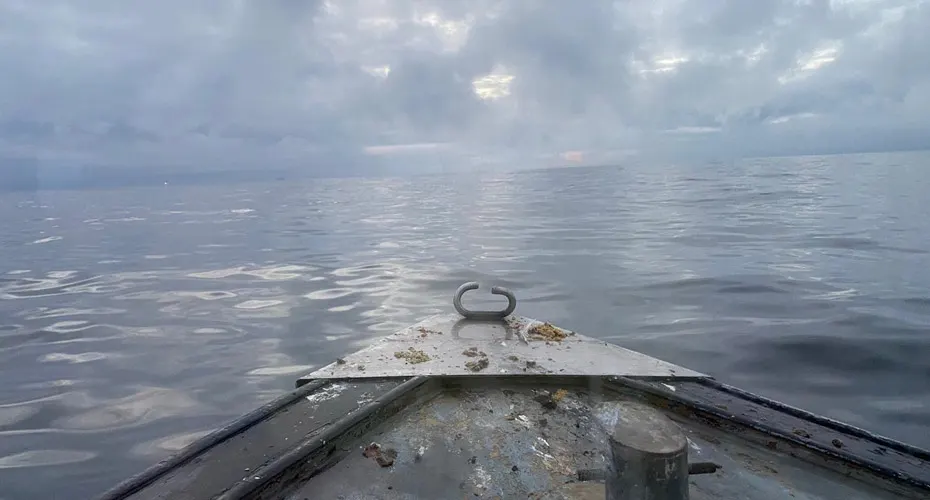Centre for Environmental Arts and Humanities
The Centre for Environmental Arts and Humanities (CEAH) is an interdisciplinary and transdisciplinary research and teaching collaboration that brings into dialogue arts and humanities with the social and environmental sciences. Together we work to understand and act upon urgent environmental, ecological and societal challenges.
We address the key social, cultural and technological challenges of the twenty-first century: from climate change and digital advancement, to agriculture and industry, and to migration and urbanization.

Centre staff
Our research involves staff and postgraduate students within the department, as well as academic staff from other institutions. More information about the research specialisms, publications and projects of our staff can be found within their individual profile pages.
Centre staff list


Professor Clare Saunders
Head of Department - HASS Cornwall
01326 259466 C.Saunders@exeter.ac.uk Cornwall
About our research
The Centre for Environmental Arts and Humanities brings together colleagues from across disciplines who are united by a common concern and challenge: the work of the arts and humanities in current debates around environment and sustainability, cultures and communities, narrative and representation in a warming world. CEAH joins a growing global network of students and scholars committed to, creating inclusive and supportive research and teaching/learning communities, and encouraging critical thinking and creative action in dealing with urgent climate and environmental problems.
We are committed to working collaboratively in response to the intractable challenges faced at local and global scales. We take seriously the fact that climate and ecological crises are experienced unequally and work together to develop decolonial, feminist, multi-species and queer approaches that prompt us to think the world otherwise. We acknowledge the complexity of negotiating climate and ecological crises and seek to understand the applications of language, narrative, and historical context in shaping cultural knowledges and values.
We work closely with scientists to rethink the relationships between disciplines and the ways knowledges of environmental and social change are created and understood. We gather around evidence and stories from historical, artistic, poetic, literary, political, scientific and technological sources, and work collaboratively to create interdisciplinary and transdisciplinary ways of working together.
Together we provide a range of expertise, experience and perspectives in reaching a critical understanding of the pasts, presents and futures of environmental and social challenges.




Research projects
Our staff are involved in a diverse range of innovative collaborative projects through our core themes, a selection of which are listed below.
Earth Humanities
Earth Humanities engages with urgent issues of climatic and environmental change. We are particularly interested in the challenges posed to Arts and Humanities researchers by the concept of the Anthropocene.
Professor Nicola Whyte - Funded by The Global Partnerships Fund
The Anthropocene recognises the power of humankind as an agent of geological transformation. Our past, present and future relationship to the subterraneous realm is therefore a matter of urgent enquiry. Mining earth and rock has unprecedented impacts for human and other-than-human life-worlds underground, on land, in water and air. Working in conversation with artists, historians, poets, writers, geologists, miners, archaeologists, metallurgists, environmental scientists, activists and practitioners we explore together the complex and unequal processes of extraction in the world today. We consider the work of mining and industry on landscapes and ecologies across multiple, interacting spatial and temporal scales. We also trace the narrative and representational frameworks that have given shape and justification to extractivist thought. Originating in the European Enlightenment and now merged with modernity’s belief in continued progress and economic growth, many societies of the West and Global North have become distracted, disconnected if not ignorant of their roles in perpetuating colonial modalities of extraction.
New imaginings of the subterranean are urgently required if we are to find ways to better care for the earth on which human and non-human life depends. How can we make visible the other-than-economic value of the subterraneous environment beneath our feet? Earth Humanities sets out to ask questions of human and more-than-human relationships with the underground in a creative, collaborative and imaginative space to find ways to be more caring, less violent, and connected to the underground.
Time and Tide: Heritage on the beach
Time and Tide: Heritage on the Beach is a collaboration between Archaeology at Streatham, and the Camborne School of Mines and Humanities on the Penryn campus, with Perranzabuloe Museum at Perranporth in Cornwall. The project investigates the mining heritage of the iconic cliffscape at Perranporth, North Cornwall.
Dr Gill Juleff, Dr Kathryn Moore, and Professor Nicola Whyte - Funded by The Annual Fund
Funded by the University of Exeter’s Annual Fund we ran three Heritage on the Beach (HOTB) events between 2017 and 2019, which included student events at the Penryn campus and on the beach at Perranporth. One key objective was to crowd-source the first baseline data on public perceptions of the mining heritage of the beach. The aim was to bring together Exeter and Penryn students to work in small groups on the beach to invite the public to complete a short questionnaire. This was combined with pop-up informal talks by local volunteers on the geology, mining and history of the cliffs and beach. The second key objective, informing the ongoing development of the project, was to establish common ground and working relationship with community partners, Perranzabuloe Museum, and Perranzabuloe Parish Council.
In the news
Stories of Change: The Past, Present and Future of Energy
The Stories of Change project aims to help to support lively public and political conversations about energy by looking in a fresh way at its past, present and future.
The project draws on history, literature, social and policy research and the arts to encourage a more imaginative approach to current and future energy choices. The project is shaped around the cross-party commitments to decarbonisation that sit at the heart of the UK Government’s Climate Change Act of 2008, and has been further energised by the UN Paris Agreement of 2015. Research has shown that many people feel disengaged, disempowered or actively hostile to the changes to the UK’s energy system required to meet the targets embedded in the Act. At the same time it shows wide acceptance that actions will be required to reduce demand and cope with future environmental hazards. However new developments and measures to manage or reduce demand can generate dispute. Our project seeks to make space to work through areas of concern and explore elements of a collective vision.
We are working with stories because they offer a popular and engaging route into thinking about the past and present and imagining possible futures, and also because stories, narratives and narration are concepts that everybody can gather around. History, digital storytelling, fictional narratives, and scenarios of the future all communicate different ideas about the consequences of change for everyday life, and explain different perspectives and attitudes towards change.
Stories of Change is supported by a grant from the UK’s Arts and Humanities Research Council, as part of the Connected Communities theme.
Selected publications
- Whyte, N. and Goodbody, A. ‘Pandaemonium : Narratives of energy-system change in historical and literary perspective’, Resilience. A Journal of the Environmental Humanities 6:2-3 (2019), 26-52. https://doi.org/10.5250/resilience.6.2-3.0026
- Smith, J, Butler, R, Day, R, Fyfe, H, Goodbody, A, Llewellyn, D, Rohse, M, Smith, B, Tyszczuk, R, Udall, J & Whyte, N, 'Gathering around stories: Interdisciplinary experiments in support of energy system transitions', Energy Research and Social Science, 31, (2017), 284-294. https://doi.org/10.1016/j.erss.2017.06.026
The Past in its Place
This five-year ERC project explores the ‘history of memory’ in a range of English and Welsh locales from the early medieval period down to the modern era.
Professor Philip Schwyzer, Dr Naomi Howell, Professor Nicola Whyte, Professor Sarah Hamilton, Professor Joanne Parker
Where is the past? Can memory be located on a map? Such questions may seem rhetorical – variations on the timeworn theme of ubi sunt – yet for centuries people in England and Wales have both sought and found the past in specific locales. They have touched it in the lady chapel and the nave. They have found it under the turnip field, where the plough turns up silver pennies. They have located it under the old oak, and in ‘the pit where the martyrs died’. In such places, memories lie layer upon layer, signalled in the traces and imprints left on landscapes, places and the very ground on which we tread.
This five-year ERC project explores the ‘history of memory’ in a range of English and Welsh locales from the early medieval period down to the modern era. Focusing on three types of place – Cathedral Tombs and Memorials, Ancient Habitations, and Local Landscapes – we investigate change and continuity in the ways individuals and communities have imagined, appropriated, and reinvented the past. Drawing on the disciplinary perspectives of literary studies, history, cultural geography and archaeology, the project identifies and interprets the manifold ‘technologies of remembrance’ – including texts, oral traditions, material objects, landscapes and customary practices – whereby individuals and groups have depicted, ratified, or contested relationships between the past and the present. PASTPLACE transcends the boundaries of periodization and discipline to examine patterns of remembrance, re-imagining and forgetting over the longue durée.
Events
We host a number of research seminars, workshops, and assorted events. You can find a list of upcoming and past events in the drop-down menus below.
Upcoming events
There are no current events to display, but please come back soon for updates.
Past events
There are no current events to display, but please come back soon for updates.
Our postgraduate research community
We have a number of Postgraduate Research students studying within the Centre at present. You can find out more about their research and study below.
Holly Conway
The study of the relationship between people, the past and identity has received increasing interdisciplinary scholarly attention. Historians have either used historical figures or landscapes as case studies to examine historical culture in nineteenth-century Britain. Adding a new dimension to this literature, this thesis will introduce British castles into the discipline by addressing the almost unknown long nineteenth-century history of the castles of Edward I. It will establish the changing roles the fortresses played and seek to understand the reception of the ruins and their cultural and environmental histories among local people and tourists in the period. Drawing attention to the significance of historical buildings and architecture at a time of increasing nationalism, this study argues that the physical relics of the medieval past played a critical key role in defining nineteenth-century Welsh local and national identity. The domination of the Welsh landscape by English-built castles, and the shared turbulent history of conquest that enshrouded the construction of these fortresses, makes an exploration of their influence on Anglo-Welsh relations, and their reception in the modern period, vital to the history of both nations and our understanding of landscape and ruination.
Email Holly: hc667@exeter.ac.uk
Katy Humberstone
My PhD project explores notions of identity in the Cornish-Mexican diaspora of the city of Pachuca (situated in Hidalgo, Mexico). Despite Cornish mining-related migration to this part of Mexico dating back to the 19th Century, Cornish imprints on the area’s tangible heritage remain salient. Taking a transnational perspective, this project aims to examine how locals interact with these multimodal spaces, bringing in notions of ‘intangible’ heritage which are yet to be examined within Cornish diaspora contexts. Drawing on a combination of innovative sociolinguistic approaches, this project examines the dynamics between ‘group’ and ‘individual’ notions of community.
Email Katy: kch207@exeter.ac.uk
Paul Simmons
Transitioning to a low carbon economy: the role of Cornish Rights of Way. Rights of way (ROW) and particularly footpaths are not nostalgic heritage but an answer to many modern-day concerns. My research proposes that footpaths have an important role to play in helping local societies adapt to and mitigate the effects of the climate and ecological emergency. The network of Cornish ROW is an important community and parish asset that has a variety of uses, for example: for physical and mental health; as biodiversity corridors; for carbon sequestration; and connecting communities through local, county and national transport policies. The practice of walking, however, is often given lip service to any future proposals of how to transition to a low carbon economy. The thesis will act as a consultative document for the incorporation of the ROW network into any future county transport plans. My methodology involves walking interviews and questionnaires. Important areas of research will also include land ownership, climate language and definitions, climate psychology and behaviour change. I am exploring a field study area of twelve local parishes surrounding Mabe, where I am now a parish councillor.
Email Paul: ps527@exeter.ac.uk
Tanya Venture
The coast has always been an attractive place to live, work and visit. The testament to this lies in the rich and diverse coastal heritage assets that appear all around Britain’s coastline. However, coastal heritage is in danger of being lost through natural processes, such as erosion, which will only be exacerbated further by the effects of climate change. Though the loss of heritage is not unusual it is nevertheless extremely emotive. My project looks to combine qualitative geographical methods with filmmaking techniques in order to create an interactive documentary. This novel approach intends to create as space where dialogues between heritage professionals and the wider public on the loss of heritage can be initiated. The aim is conversely not, how to save but instead how to lose better. Through engaging with these discussions in a unique way it is hoped that the transformative opportunities associated with an ever changing coast maybe embraced rather than resisted.
Email Tanya: t.venture@exeter.ac.uk



